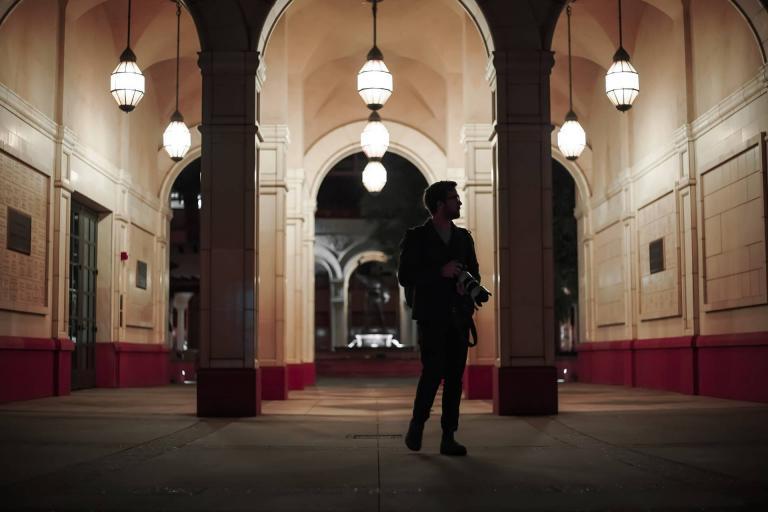How to Write the USC Why Us Essay + Accepted Sample

In this article, we’ll cover how to write the USC “Why Us” Essay. We’ll also be including an example essay that was accepted. You can also find the original applicant’s stats and marks below.
This should give you a general guideline to what your chances are of getting accepted into USC, as well as what you need to get in for your major.
For reference, the applicant’s information that we are basing off on was accepted into USC for Neuroscience. As such, he was accepted into USC’s Dornsife. However, they were an associate of ours and did not receive essay editing from us. They only received advice and consultation from us.
Okay, now onto the main attraction.
TL;DR: This applicant had an essay that was alright, but his strong grades and extracurriculars demonstrated he went above and beyond what most applicants could do.
Table of Contents

USC Why Us Essay Prompt
- How Important is the USC Why Us Essay?
Accepted Applicant’s GPA and Scores
Accepted applicant’s background + extracurriculars, sample working essay, why this essay worked.
Describe how you plan to pursue your academic interests and why you want to explore them at USC specifically. Please feel free to address your first- and second-choice major selections. (Approximately 250 words) USC Essay Prompt

How Important is the USC Why US Essay?
As you may have already seen on the official page , USC takes on a holistic admissions approach. This means that more than just your grades and test scores will be considered. Your essays will be weighed in as well.
With the rise of grade inflation, higher GPAs during the COVID19 Pandemic, and harder measuring tools for academic success, USC’s application essays are now more important than ever before.
To rub salt in the wound, the “Why Us” Essay is perhaps one of if not the most important essay in your application to USC. Why is that? It’s because it gives answers to questions that are most important to the admissions officers: what will you be doing here?
Some people have no idea what they want to do. Others have an entire startup idea already planned and ready to execute at USC. Depending on your answer, it can make or break your chances of acceptance.
So, long story short: it’s super important. Period.
Here’s some info on what the applicant’s stats were. Hopefully this will help you have a good idea of what it takes to get accepted into USC Dornsife.
- Summer: 4.00 GPA at Community college
- Fall: 3.86 GPA at 4 year 4.00 GPA at Community college
- Winter: 3.91 GPA at 4-year
- Spring: 3.51 (2 B’s 2 A’s) at 4-year and 4.00 GPA at Community college
- 4 year overall GPA: 3.76 GPA. Community College overall GPA: 4.00
Combined GPA of 4-year and Community college: 3.88 GPA.
Now, here’s everything the applicant had done for their extracurriculars and other projects. We underlined the particularly impressive ones in bold.
If you want to have extracurriculars that will help you stand out, make sure to conduct your own projects with positive results. These typically show a dedication and passion for your major more than others.
- Completed all GE’s.
- Completed majority of neuroscience recommended major preparation courses.
- Completed entire second major choice recommended preparation (Second major choice: Health and Human sciences.)
- Conducted 3D-printed mask initiative. Created masks for the COVID-19 Pandemic through 3D printing. Worked to make sure final product fit with mask regulations. Gave the printed masks to those in need.
- Conducted a program at UCLA
Extracurriculars:
- Participate + active at local church
- Learned Basic CPR
- Doctors Without Borders
Work Experience:
- Worked a job for 2 years.
- Externship at Brown University
Note: This sample essay has many spots that can be edited to look better. However, this essay was accepted for someone with a fantastic GPA and incredible extracurriculars. They went above and beyond.
After scrolling on YouTube for hours as a 16-year-old, I was suddenly recommended watching a neurosurgeon perform brain surgery while the patient played the guitar. This strange yet interesting video of how a patient’s functions were still functional even though the skull is wide open led me to USC professor Donald Arnold’s body of work, which focuses on Behavioral, Systems, and Cognitives. His work led me to take a step in my life to pursue a career in Neuroscience. I hope to conduct Undergraduate research in the Neuroscience Experience Undergraduate Research and Learning Program or NEURAL. Working under Tirin Moore and Sarah Bottjer, I will collaborate with students in Humanities, Physical Sciences, and Mathematics. The projects that are housed at NEURAL will allow me to explore my catenated interests. Collaborating with students in a variety of fields can allow me to solve real-world problems. The obstacles we face as a whole, we need doctors who not only think unclouded but also view challenges from various lenses. Dornsife’s emphasis on amalgamated learning within the Neuroscience Honors Program encourages metacognitive problem solving and thinking. I hope to integrate psychology, Biology, and Neuroscience by taking courses like “Neuroscience Colloquium and Systems Neuroscience: From Synapses to Perception,” further interning for SURF offered by USC. By merging multiple disciplines in my study, I will help bridge together people and the problems we face. (Word Count: 233) Nathan –Aceppted to USC for Neuroscience
So, here are a few points as to how this essay worked and what it did right.
- Using an interesting opening
- Being specific on what he wants to do
- Showing how USC’s resources specifically (particular professors) work for his future career
- Mentioning his multiple interests and merging them together into a more specific future plan
Now, in the grand scheme of things, this is an okay essay.
However, if you are performing below what the applicant has in terms of GPA, scores, background, and extracurriculars, then you’ll need a better essay .
We wanted to show this essay because it is a decent essay that is around the level of what you would expect of someone who had done some research on their application essays.
If you are below a 3.9 cumulative nonweighted GPA, are not doing internships at prestigious schools, and don’t have the number of clubs this student has, that’s actually okay! You just need to make sure that your essay is better than what we’ve posted above!
So, what does that leave for us?
That means if you’re not at the 99th percentile of your class, taking multiple courses over the summer, and doing externships with professors at an Ivy League such as Brown University, then you have no chances of getting accepted to USC.
Just kidding.
On a serious note, if you want to get accepted to USC, knowing how to write the USC why us essay is crucial. This is perhaps one of the most important essays in the application because it demonstrates to the admissions office why they are #1 on your list. It also shows them who is worthy of entering their school, and who will use their resources well.
If you’re still struggling on learning how to write the USC why us essay, you may want to discuss it with us! Send us a copy of your essay, or simply contact us ! You can get a free consultation, and we’ll give you free help in your initial call!
Leave a Comment Cancel reply
Free professional usc essay help.
Our clients were accepted with lower GPAs than the average. Contact us for a free consultation! We'll get to you ASAP!

